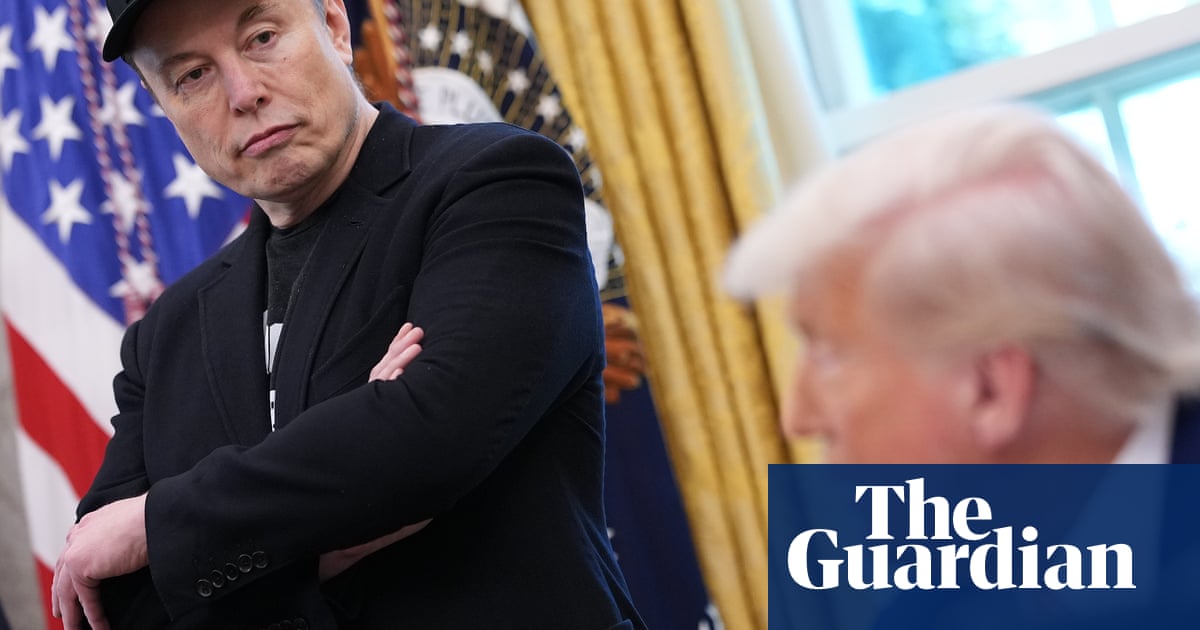Elon Musk, the billionaire tech entrepreneur, has opened a new rift withDonald Trumpby denouncing the US president’stax and spending billas a “disgusting abomination”.
Musk’s online outburst could embolden fiscally conservative Republican senators – some of whom have already spoken out – to defy Trump as they continue crucial negotiations on Capitol Hill over the so-called “one big, beautiful bill”.
“I’m sorry, but I just can’t stand it anymore,” Muskwrote on his X social media platformon Tuesday. “This massive, outrageous, pork-filled Congressional spending bill is a disgusting abomination. Shame on those who voted for it: you know you did wrong. You know it.”
Musk, who had previously voiced criticism of the proposed legislation, quipping that it could be big or beautiful but not both, added on X: “It will massively increase the already gigantic budget deficit to $2.5 trillion (!!!) and burden America citizens with crushingly unsustainable debt.”
He continued: “Congress is making America bankrupt.”
A top donor to Trump during last year’s election campaign, Muskdeparted the White Houselast week after steering its so-called “department of government efficiency” (Doge) with the stated mission of slashing fraud and abuse within federal departments. He has argued that the Republican bill will undermine Doge’s work and drive the US further into debt.
On Tuesday, Musk drew immediate support from Thomas Massie, one of only two Republicans who last month voted against the bill in the House of Representatives. “He’s right,”Massie responded on X.
Having narrowly passed theHouse of Representatives, the bill is now under consideration in the Senate, which is aiming to pass a revised version by 4 July. Some Republican fiscal conservatives, such as senators Ron Johnson and Rand Paul, share Musk’s concerns about the need for significant spending cuts.
Johnson told CNN: “We have enough [holdouts] to stop the process until the president gets serious about spending reduction and reducing the deficit.”
Trump has previously dismissed Republican dissenters as “grandstanders” and urged them to get onboard. His influence proved decisive in quelling a potential rebellion in the House. On Monday he wrote on his Truth Social platform: “So many false statements are being made about ‘THE ONE, BIG, BEAUTIFUL BILL’.”
The White House acknowledged Musk’s stance but said it has not changed its position on the bill. Press secretary Karoline Leavitttold reporters: “Look, the president already knows where Elon Musk stood on this bill. It doesn’t change the president’s opinion: this is one big, beautiful bill and he is sticking to it.”
The bill extends Trump’s 2017 tax cuts and includes new spending for border security and the military. Republicans aimed to offset these costs with cuts to programmmes such as Medicaid, food stamps and green-energy tax credits.
Sign up toThis Week in Trumpland
A deep dive into the policies, controversies and oddities surrounding the Trump administration
after newsletter promotion
Projections from the Congressional Budget Office and independent analysts indicate that the bill would add between $2.3tn and $5tn to the deficit over the next 10 years. White House officials contend that the economic growth generated by tax cuts will offset the increased spending.
Russ Vought, director of the office of management and budget,told CNN: “This bill doesn’t increase the deficit or hurt the debt. In fact, it lowers it by $1.4tn.”
But Democrats have warned that the budget would raise the cost of healthcare for millions of people, and cause millions to lose coverage, in order to pay for tax cuts for billionaires.A new analysisby Yale University and the University of Pennsylvania found that it could lead to more than 51,000 preventable deaths.
Chuck Schumer, the Senate minority leader,said in a floor speechon Tuesday: “Donald Trump and his so-called ‘big, beautiful bill’ is ugly to its very core. Behind the smoke and mirrors lies a cruel and draconian truth: tax breaks for the ultra-wealthy paid for by gutting healthcare for millions of Americans.”
Bernie Sanders, an independent senator from Vermont,added in a statement: “Let’s be clear. The Republican reconciliation bill which makes massive cuts to Medicaid in order to pay for huge tax breaks for billionaires is not just bad public policy. It is not just immoral. It is a death sentence for struggling Americans.”
